Independence Day: why America celebrates 4 July
The significance of the Declaration of Independence - and why it should be celebrated two days earlier

Everyone knows that 4 July marks Independence Day. From the Founding Fathers to the Declaration of Independence, the date has achieved mythical status for many Americans.
Yet despite its huge importance as the birthday of the nation, for decades the day itself has been marked with scrupulously non-political celebrations.
Not this year. 2019 will see a Fourth of July parade in Washington D.C. unlike any other. Tanks will roll through the streets of the capital, fighters jets will fly overhead, a military band will play and at the centre will stand Donald Trump, surrounded by army, navy and airforce chiefs.
Subscribe to The Week
Escape your echo chamber. Get the facts behind the news, plus analysis from multiple perspectives.

Sign up for The Week's Free Newsletters
From our morning news briefing to a weekly Good News Newsletter, get the best of The Week delivered directly to your inbox.
From our morning news briefing to a weekly Good News Newsletter, get the best of The Week delivered directly to your inbox.
The Guardian reports that “critics fear that he will be unable to resist turning it into a vainglorious and politically divisive campaign rally”, while there are also demands the US president should “foot the bill for any damage caused to Washington’s roads, bridges and monuments by his ‘authoritarian-style’ display of military pomp”.
But what lies behind the fireworks, festivities and patriotic parades?
How did the first Independence Day come about?
In 1776, Richard Henry Lee, who was born in Virginia but schooled in England, proposed that the 13 American colonies should declare their independence from Britain.
A committee of five men, including Thomas Jefferson, was appointed to build a case for severing ties with Britain and draft the Declaration of Independence. Congress voted in favour of independence on 2 July and it was formally issued two days later, on 4 July 1776.
The Declaration of Independence was first read out to cheering crowds on 8 July, and by 15 July all 13 American colonies had approved it (New York previously abstained from voting).
What does the declaration say and how is it significant today?
The Declaration set out new guidelines for basic rights, values and ideals for American citizens.
It proclaimed that in the newly independent nation, “all men are created equal” and should have the right to “life, liberty and the pursuit of happiness”.
It has since proved moral ammunition to civil rights campaigners in America and beyond. Abraham Lincoln used the “all men are created equal” ideal to justify civil war against the slave-owning southern states, while Martin Luther King Jr borrowed from the declaration in his “I have a dream” speech in 1963.
Why is Independence Day celebrated on 4 July?
John Adams, one of the “Founding Fathers” who signed the declaration, believed that Independence Day should be celebrated on 2 July – the date on which the vote for independence took place. He wrote to his wife Abigail that 2 July “will be celebrated, by succeeding generations, as the great anniversary festival”, according to History.com.
Independence Day was not widely celebrated during the Founding Fathers’ lifespan, Constitution Daily says. When festivities did begin in the early 19th century, they focused on 4 July – the date printed on the top of the document as it was first publicly issued.
How is it celebrated?
Almost a century after the declaration was written, 4 July became a national holiday in 1870, and a paid holiday for federal employees in 1941.
Celebrations differ from town to town, but many include barbecues, readings of the declaration and all-American parades accompanied by live music.
Much of the nation’s attention will this year be focused on Washington D.C. where Trump’s “Salute to America” celebration will see tanks, fireworks and a military flyover by Air Force One and the Blue Angels fighter squadron.
“For decades, presidents have kept a low profile during Washington’s annual celebration of the 1776 Declaration of Independence, as typically hundreds of thousands of people gather at the National Mall for a nonpartisan concert and fireworks,” says the Guardian, “but ever the disrupter, Trump is putting himself centre stage this year.”
The militarisation of the Fourth of July parade has provoked comparisons with dictatorships around the world, while others have criticised the cost. The White House has not released a budget for the day but the Pentagon postponed a military parade planned for last November after estimating it could hit $90m.
Tom Udall, a Democratic senator, said: “The American people deserve to know how much of their money the president is spending to turn their July 4th celebration into a de facto campaign rally.”
Sign up for Today's Best Articles in your inbox
A free daily email with the biggest news stories of the day – and the best features from TheWeek.com
-
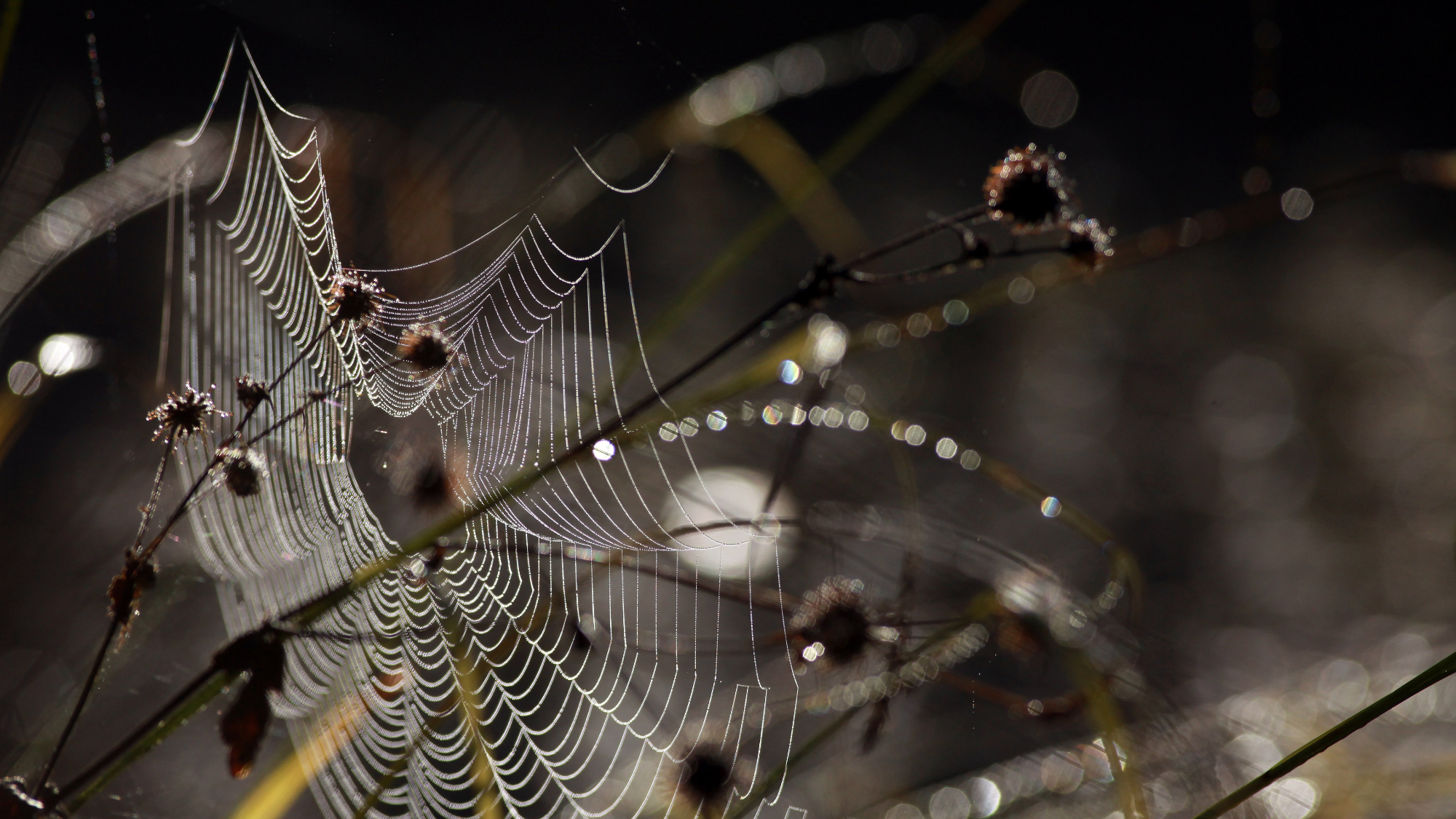 Novel 'bone collector' caterpillar wears its prey
Novel 'bone collector' caterpillar wears its preySpeed Read Hawaiian scientists discover a carnivorous caterpillar that decorates its shell with the body parts of dead insects
By Peter Weber, The Week US
-
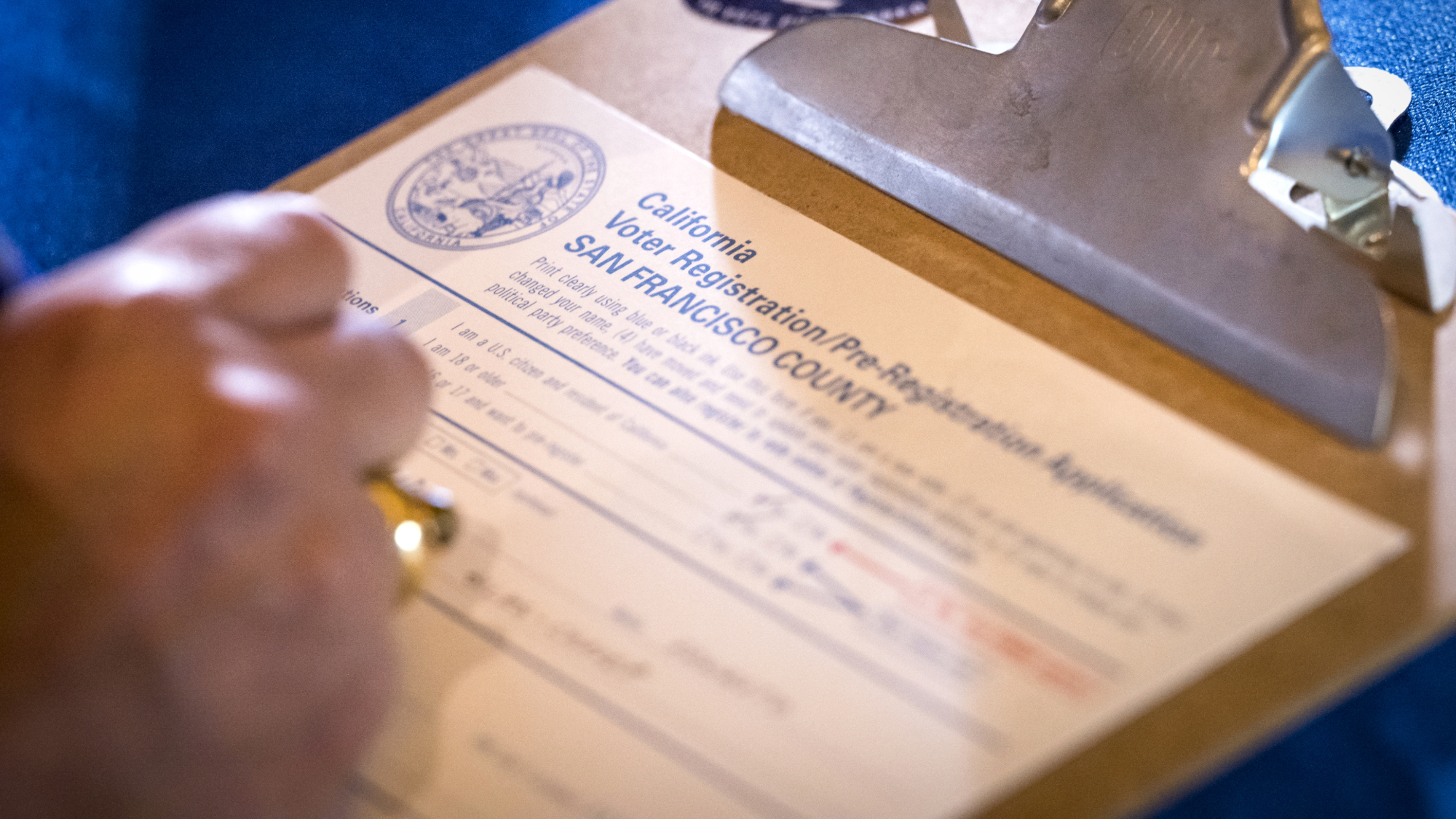 Judge blocks key part of Trump's elections overhaul
Judge blocks key part of Trump's elections overhaulSpeed Read Colleen Kollar-Kotelly's decision temporarily bars federal officials from requiring Americans to prove they are citizens to register to vote
By Rafi Schwartz, The Week US
-
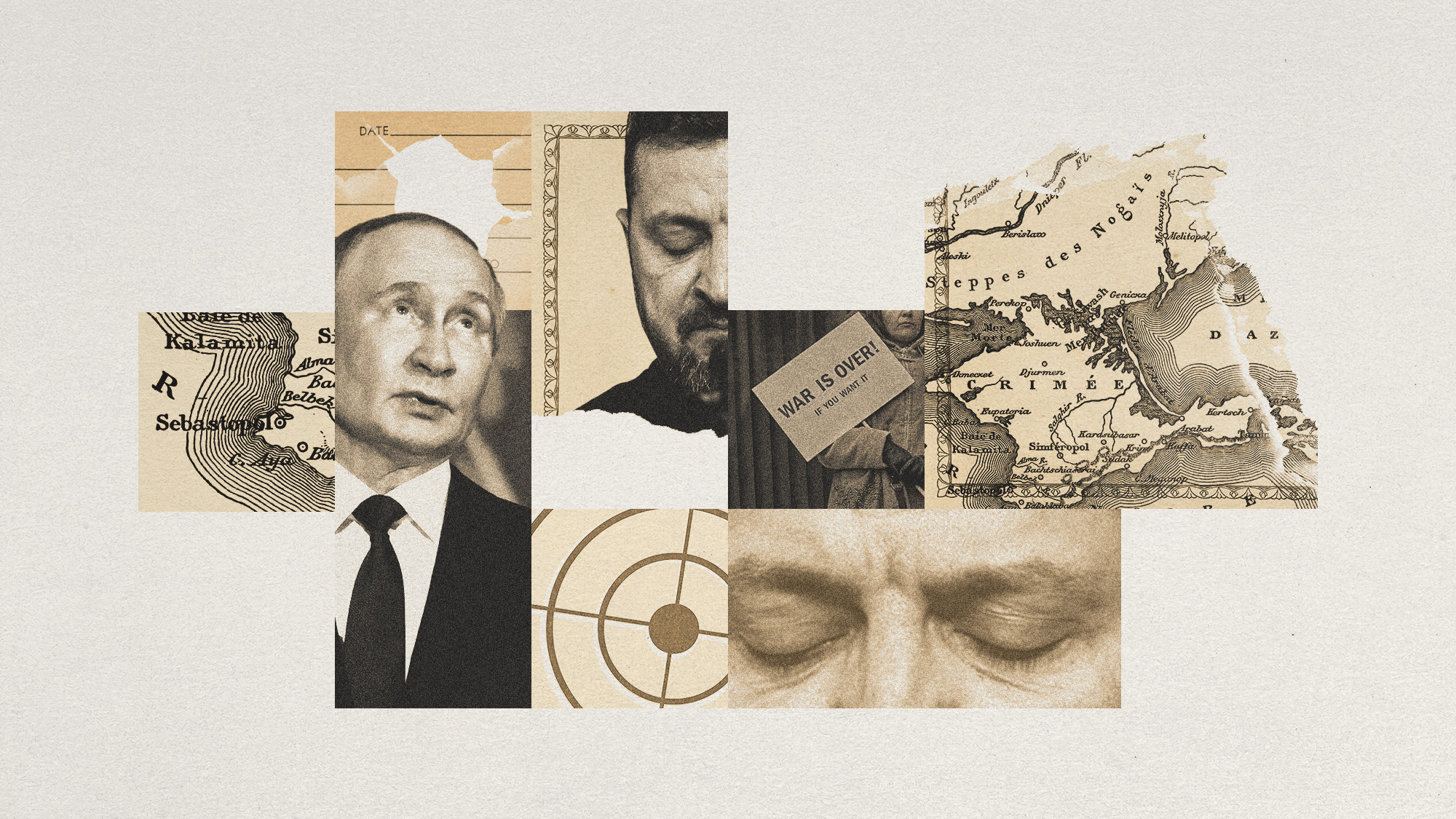 Why is Crimea a sticking point between Russia and Ukraine?
Why is Crimea a sticking point between Russia and Ukraine?Today's Big Question Questions over control of the Black Sea peninsula are stymying the peace process
By Joel Mathis, The Week US
-
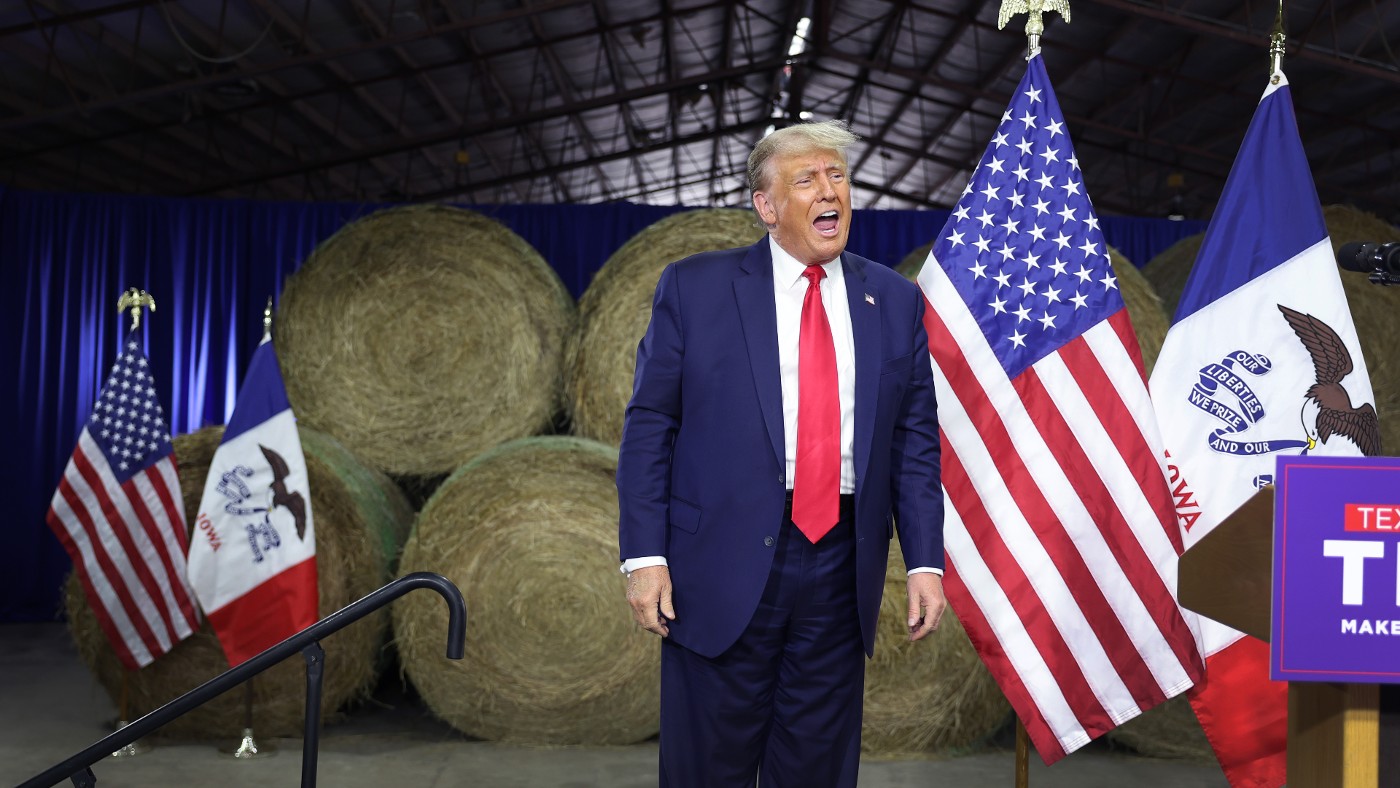 Flies attack Donald Trump
Flies attack Donald TrumpTall Tales And other stories from the stranger side of life
By Chas Newkey-Burden, The Week UK
-
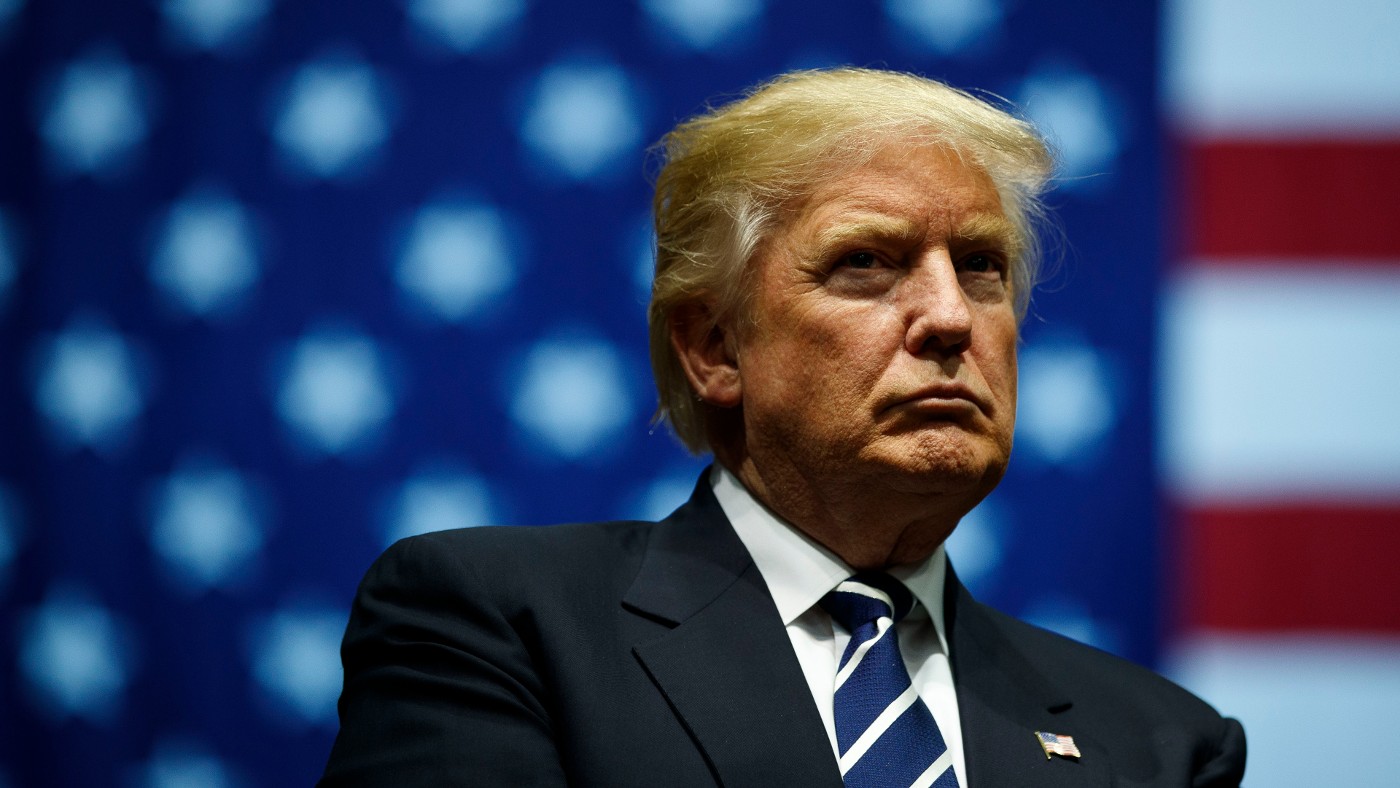 Donald Trump criminal charges for 6 January could strain 2024 candidacy
Donald Trump criminal charges for 6 January could strain 2024 candidacySpeed Read Former president’s ‘pettifoggery’ won’t work well at trial, said analyst
By Chas Newkey-Burden
-
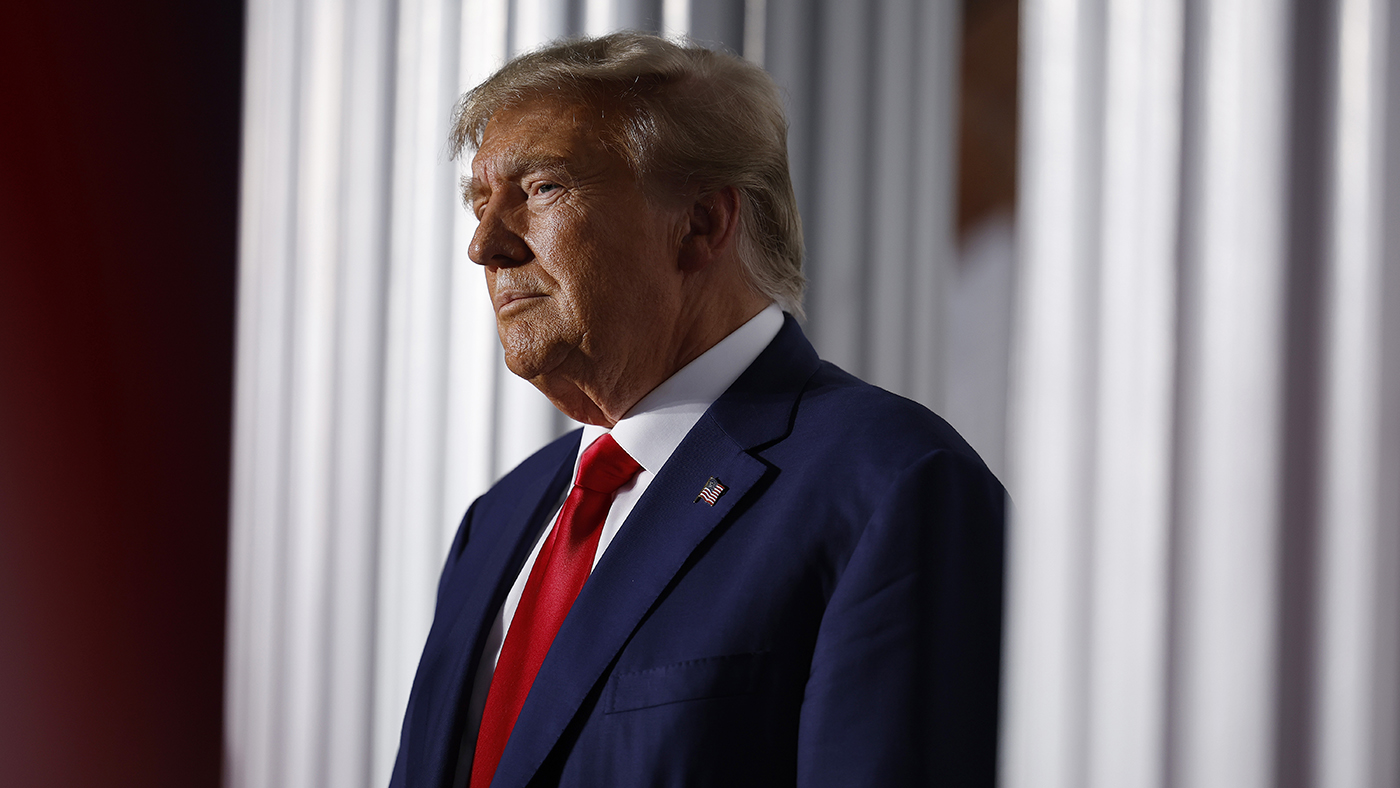 Donald Trump in the dock: a fraught moment for US democracy
Donald Trump in the dock: a fraught moment for US democracyTalking Point There is speculation that former president could end up running his 2024 election campaign from behind bars
By The Week Staff
-
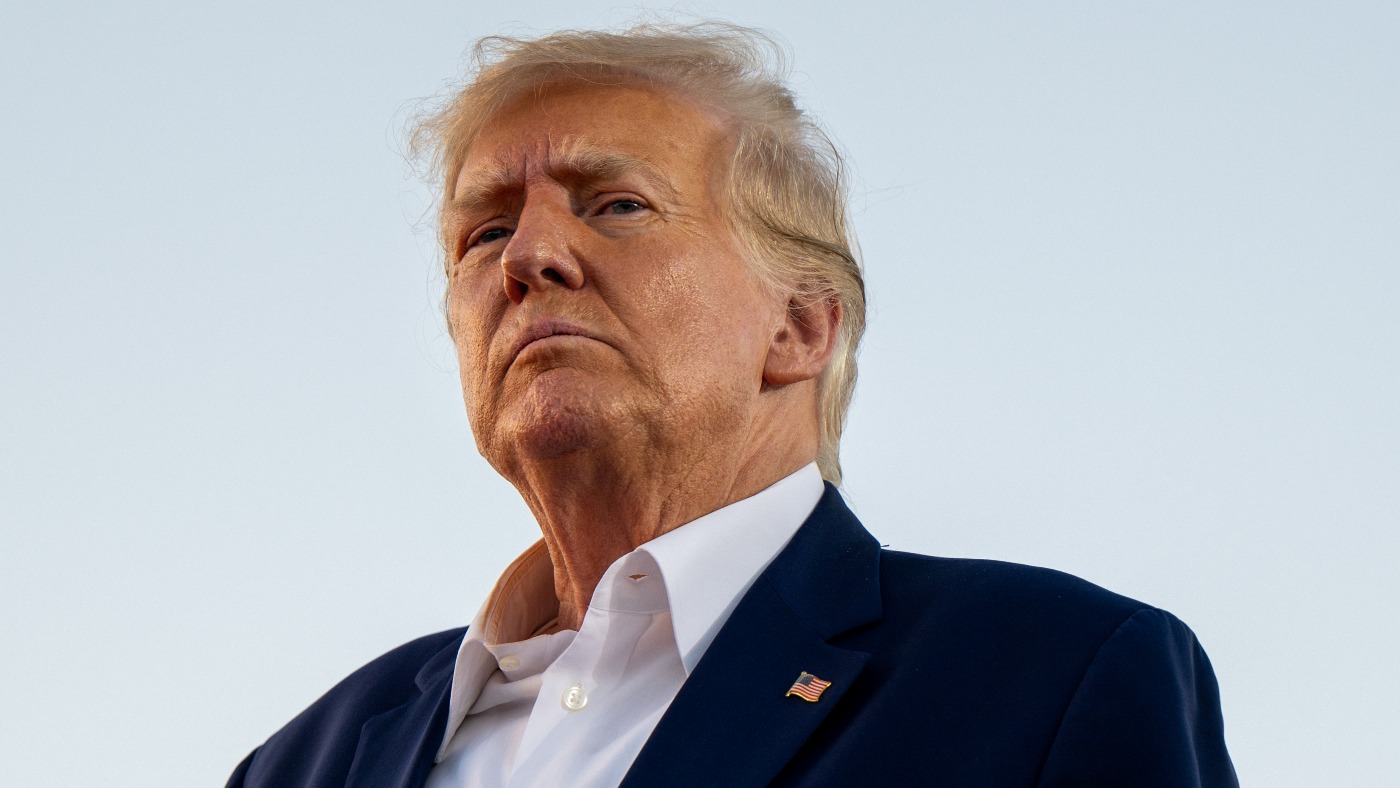 Donald Trump indicted again: is latest threat of prison a game changer?
Donald Trump indicted again: is latest threat of prison a game changer?Today's Big Question The former president ‘really could be going to jail’ but Republicans ‘may not care’ say commentators
By Chas Newkey-Burden, The Week UK
-
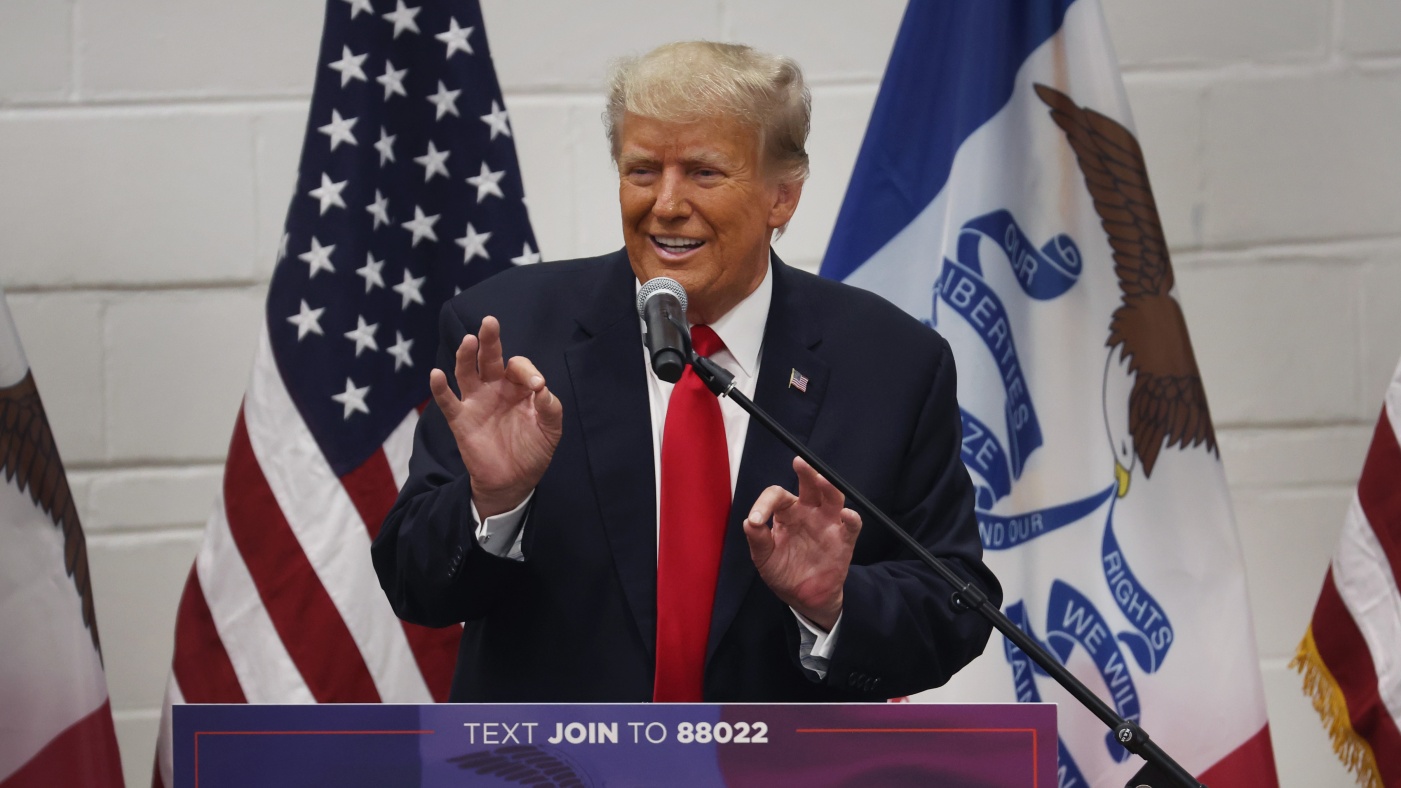 Trump told he could face charges over classified Mar-a-Lago documents
Trump told he could face charges over classified Mar-a-Lago documentsSpeed Read A second criminal indictment is on the cards for the former US president and current Republican frontrunner
By Sorcha Bradley, The Week UK
-
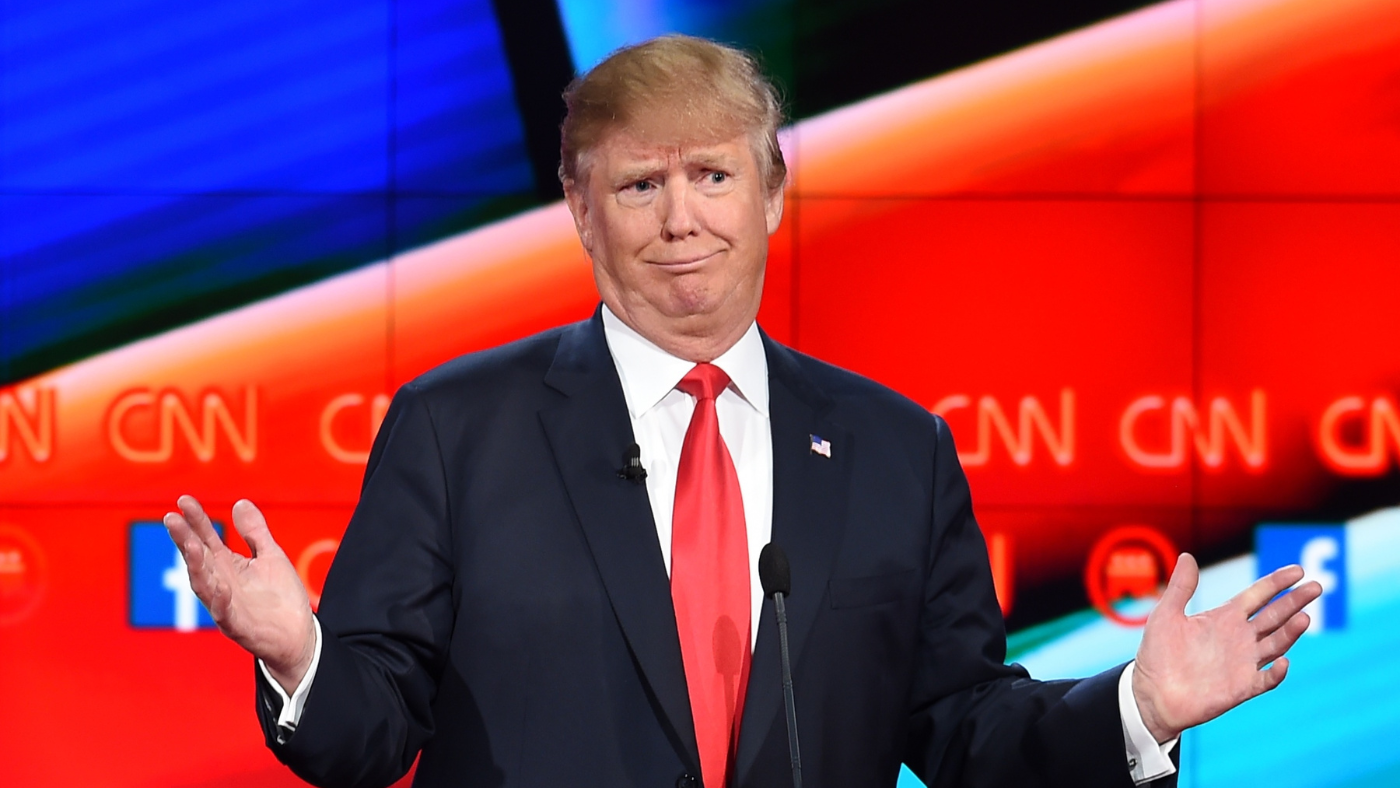 The return of Donald Trump to prime-time television
The return of Donald Trump to prime-time televisionfeature CNN executives have been condemned over the former president’s televised town hall
By The Week Staff
-
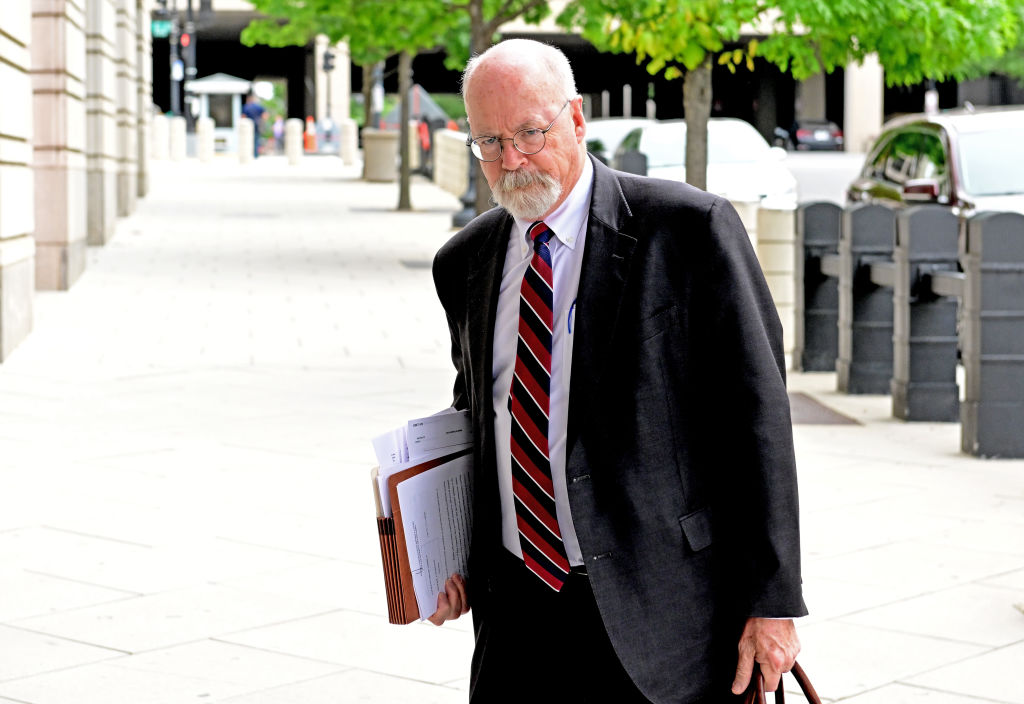 Durham criticizes FBI, offers little new in final report on 4-year Trump-Russia investigation review
Durham criticizes FBI, offers little new in final report on 4-year Trump-Russia investigation reviewSpeed Read
By Peter Weber, The Week US
-
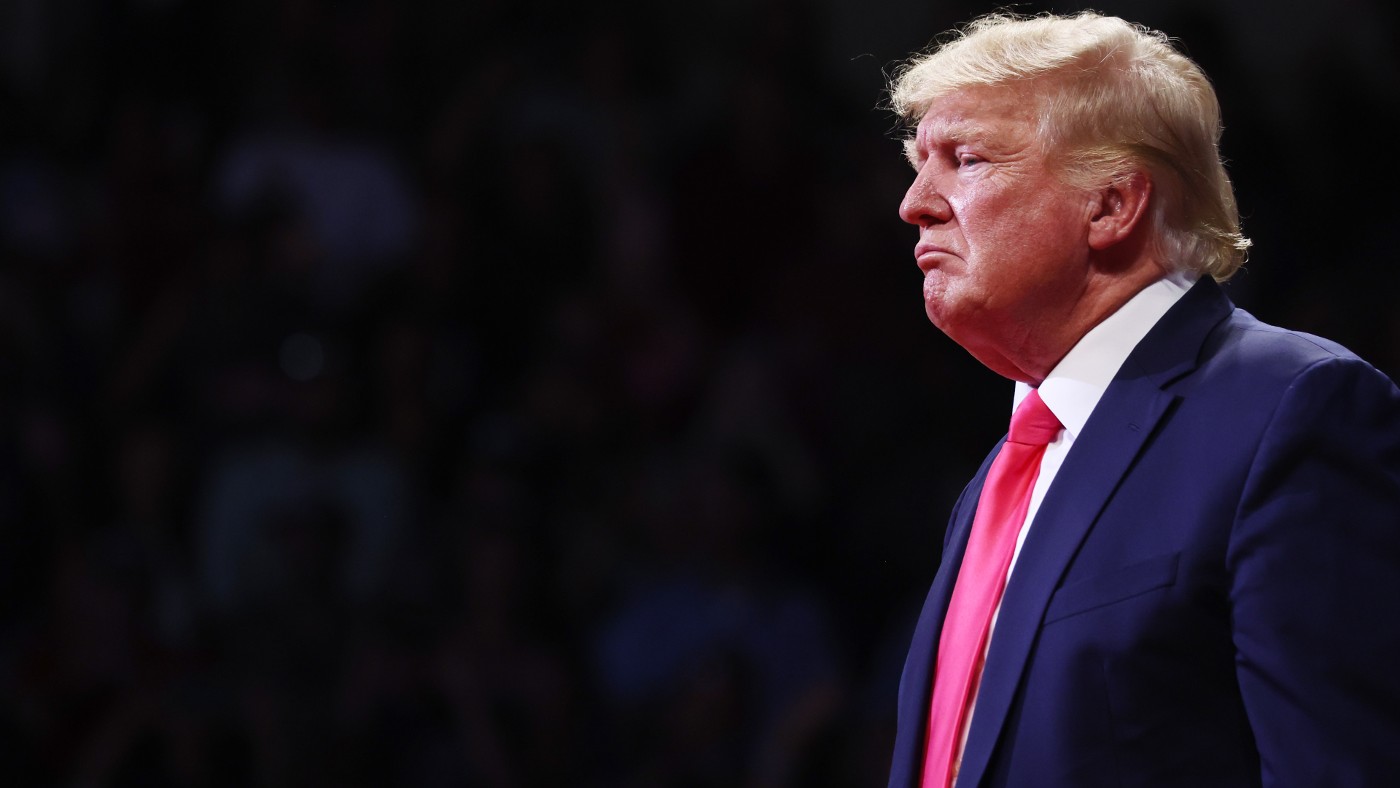 Trump ally’s ‘prove me wrong’ challenge backfires
Trump ally’s ‘prove me wrong’ challenge backfiresfeature And other stories from the stranger side of life
By Chas Newkey-Burden, The Week UK